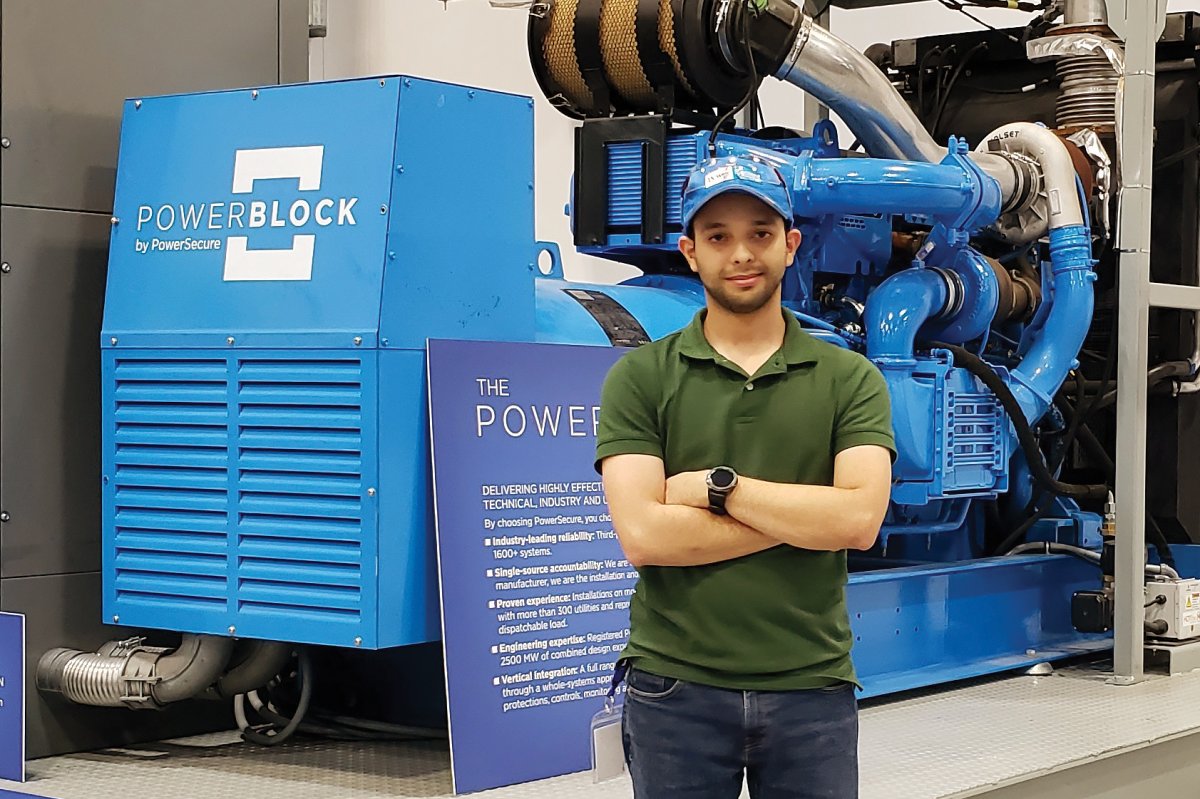Puerto Rico flashback

CSE alumnus hopes to improve his country's electrical grid
November 9, 2018
When Hurricane Maria struck Puerto Rico last year, it knocked out power to the entire island. Nearly three and- a-half million people were left without electricity, some for months, including the family of Ruben Otero De Leon (Electrical Engineering M.S. ’15, Ph.D. ’17).
“Everybody was worried,” said Otero De Leon, who couldn’t reach his parents for a week.
Now, more than a year later, the CSE alumnus, who grew up in Puerto Rico and works for an energy technology company in North Carolina, may play a role in improving the reliability of the island’s electrical grid.
Going back in time
Following the storm, Otero De Leon’s father ran a small diesel generator every morning to charge a car battery that powered essentials, including lights, a refrigerator, and cell phones. It wasn’t strong enough to run the washing machine, however, so his mother washed clothes by hand, just as she had as a child.
“She said she was going back in time,” Otero De Leon recalled. “But they were among the lucky who got power [back] in January.”
Others, especially with medical concerns, weren’t so fortunate. They couldn’t operate vital respiratory equipment or refrigerate medicines such as insulin.
The loss of life is still being calculated and it’s forced Puerto Rico to assess its electrical infrastructure.
Today, most transmission and distribution lines have been repaired, but the grid remains fragile and just as likely to get knocked down again by another big storm. Otero De Leon, and others in his field, believe decentralizing and diversifying power generation may help the island weather the future.
Microgrids—small, self-sufficient power grids that incorporate renewable sources—are one solution.
A summer in the Twin Cities
When he was an undergraduate at the University of Puerto Rico–Mayaguez, Otero De Leon spent a summer at the University of Minnesota researching power electronics with Professor Ned Mohan. This led to graduate studies in CSE, where he was a Carl and Ethel Swanson scholar.
Ultimately, Otero De Leon landed his present job as an energy storage engineer with PowerSecure.
He has installed a microgrid battery storage system on a North Carolina pig farm that collects electricity generated by methane gas and worked on a demonstration housing development in Alabama, which includes several hundred kilowatts of solar panels, battery storage, and a natural gas generator as backup.
Most recently, Otero De Leon installed a system at the U.S. Navy’s Pacific Missile Range Facility in Hawaii.
Now Puerto Rico is soliciting bids to create microgrids. Companies such as Tesla and Sonnen are designing projects. PowerSecure, which repaired power lines on the U.S. territory, may also get involved, said Otero De Leon.
“That would be very exciting,” he said.
“Some sections of the island could keep drawing power from the microgrids even if the main public grid collapsed,” Otero De Leon explained. “And maybe people could manage a little better.”
Story by Maja Beckstrom
To read about CSE alumnus Kenton Spading's hurricane experiences, visit our online story "Restoring infrastructure to rebuild lives."
To read about CSE alumnus Jay Axness' memory of Hurricane Harvey, visit our online story "Addressing a different sense of urgency."
